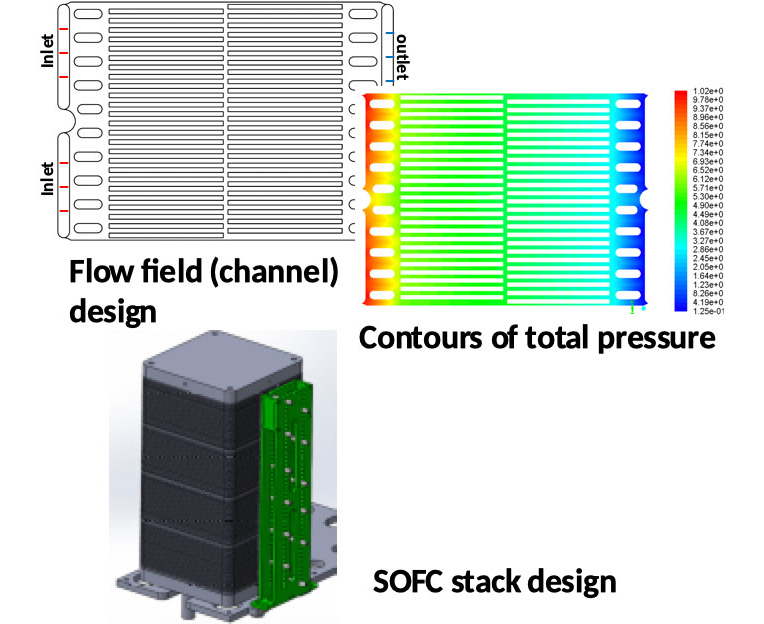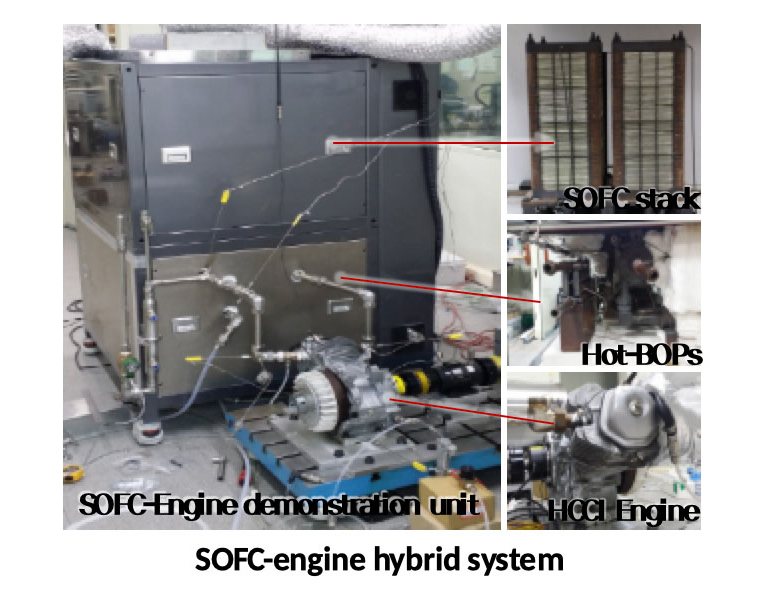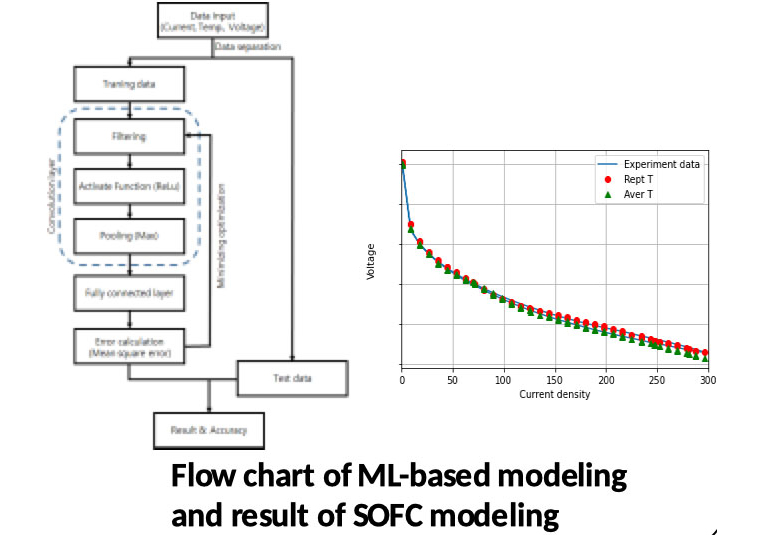SOFC stack development
SOFC (solid oxide fuel cell) operates at high temperatures over 700 degrees C, therefore its energy conversion efficiency is higher than that of low-temperature fuel cells. Also, SOFC is very fuel flexible; CO, CH₄, biogas, and ammonia (NH₃) can be directly utilized as fuel without any pre-treatment. In this sense, the SOFC has been regarded as the most promising fuel cell.
HERO Lab. has been being devised a SOFC stack, primarily focusing on the flow field design, thermal management, pressure control, and structural stability. Computational fluid dynamics (CFD) has been used as a tool for preliminary study, then the experimental investigation has followed to confirm the design.

SOFC hybrid power generation
A SOFC-engine hybrid system is a synergic combination of a SOFC and an internal combustion hydrogen engine. In the hybrid system, the unreacted fuel substance released from the SOFC is burnt in the engine, generating more electricity and increasing electrical efficiency.
While working at KIMM, Prof. Lee led the project with MiCo company and other universities and succeeded in demonstration system integration and operation at 5kW-class.
HERO Lab. has been being planned further research, primarily focusing on the system optimization, control scheme design, and scale-up design up to MW class. Novel concept design also continues to propose a better idea of such hybrid systems. Cooperative research with industries and research institutions is necessary to realize this concept.

Machine learning-based system modeling
Machine learning (ML) is the study of computer algorithms that can improve automatically through experience and by the use of data; that is a part of artificial intelligence (Wikipedia).
During past years, the ML has been applied to various energy system modeling; fuel cell modeling is one of the efficient areas for the ML to be implemented.
Based on the experiences of machine learning-based modeling at KIMM, Prof. Lee and HERO Lab will apply the ML to various areas, such as fuel cell stack design and performance modeling.

